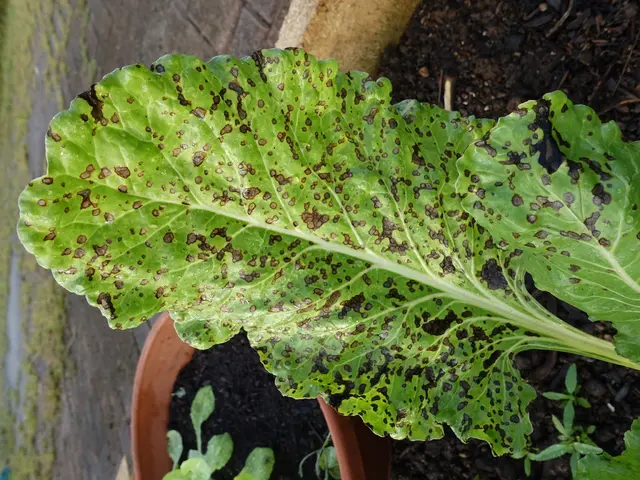Organic Rose Farmer in Haridwar, Lakhbir Singh, Yearly Income Reaches 10 Million Rupees from Roses Grown under Protected Cultivation
In the heart of India's sacred city, Haridwar, a visionary farmer named Lakhbir Singh is strikingly revolutionizing the local landscape. With roots tracing back to traditional rice and wheat farming, Lakhbir holds degrees in Economics, Social Science, and Rural Development, seemingly destined for a conventional career. However, it is the pull of the land, family legacy, and the allure of greener pastures in horticulture that captivated him.
Driven by the cultural and religious essence of Haridwar, often referred to as the Land of the Gods, Lakhbir sensed an opportunity. Flowers, especially roses, are woven deeply into the spiritual and festive aspects of life, whether offered in rituals along the Ganges or beautifully arranged during ceremonial occasions. Recognizing the consistent demand for these flowers, especially during tourist and wedding seasons, Lakhbir decided to focus on cultivating multiple varieties of roses perfect for bouquet-making, each with a longer shelf life, strong stems, vibrant colors, and high keeping quality.
Enter his polyhouse, and you're greeted by rows of blooming reds, soft pinks, elegant whites, and cheerful yellows – a delightful riot of floral brilliance. These roses are primarily sold in the bustling markets of Haridwar, Rishikesh, and Dehradun, thriving under the steady demand for quality flowers.
Protected cultivation has been a game-changer for Lakhbir, allowing him to curate an ideal microclimate where temperature, humidity, and light exposure can be regulated. This not only minimizes the risk of pest infestations and diseases but also ensures continuous production throughout the year.
Embracing a philosophy of environmental consciousness, Lakhbir transitioned towards organic practices, creating an eco-friendly and financially sound farming model. His organic compost, made from cow dung, cow urine, dried leaves, and leftover rose clippings, replenishes soil fertility while cutting down on costs. Even pest management relies on natural solutions like neem oil and crushed neem kernels, deterring common pests and fungal infections.
As Lakhbir's story takes root, it stretches beyond his personal farmland. Visionary as ever, he spearheaded the formation of Nav Gurukul FPO, bringing together 450 farmers from the surrounding areas. Through this collective, Lakhbir envisions a platform for knowledge exchange, resource pooling, and collective marketing. Nav Gurukul also aims to equip farmers with access to government schemes, farm machinery, and financial credit – services often challenging for small or marginal farmers to obtain independently.
While the success of Lakhbir's rose cultivation continues, he looks toward the future. Plans are already underway to convert two acres of his farmland into vegetable cultivation, ensuring a steady income flow throughout the year. His skills in organic composting and pest management will smoothly translate into this new venture, ensuring quality, chemical-free produce.
From flowers to food, Lakhbir Singh's story tells more than the tale of a prosperous farmer. It's the narrative of a pioneer shaping a new farming paradigm in Haridwar – one that harmoniously blends tradition, innovation, and community to bring forth a resilient, sustainable, and empowering future.
Related Links- Raj Bahadur Saini: Cultivating a Grassroots Movement for Organic Farming and Farmer Empowerment in Uttarakhand - Raj Bahadur Saini, a former journalist and the CEO of Village Development Society, has led the agricultural transformation in Uttarakhand through organic farming, advocacy, and community development.
References: - https://www.farmerempowerment.net/lakhbir-singh-floriculture-sustainable-agriculture-haridwar - https://www.thebetterindia.com/175812/floriculture-lakhbir-singh-sustainable-farming-uttarakhand/ - https://www.downtoearth.org.in/blog/farming/cultivate-creativity-living-labs-provide-insight-sustainable-farming-75427 - https://www.thebetterindia.com/164333/lakhbir-singh-horticulturist-nav-gurukul/
First published on: 23 Jun 2025, 05:51 IST
- Lakhbir's floriculture journey is a testament to the intersecting worlds of manufacturing, industry, finance, and entrepreneurship.
- The retail demand for roses in Haridwar, Rishikesh, and Dehradun provides a steady income source for this budding entrepreneur.
- With polyhouse technology, Lakhbir leverages data and cloud computing to optimize growing conditions, minimizing risks in the manufacturing process.
- Lakhbir's organic farming model, powered by compost made from cow dung and cow urine, aligns with the lifestyle choices seeking sustainable practices.
- The fashion-and-beauty industry can draw inspiration from Lakhbir's roses, as they create a statement in bouquets and arrangements.
- The food-and-drink sector could benefit from learning about Lakhbir's composting techniques to promote chemical-free produce and healthier dining experiences.
- Nav Gurukul FPO, spearheaded by Lakhbir, serves as a model for venture-capital investments in rural entrepreneurship and small-business development.
- Investors interested in sustainable initiatives may consider opportunities in emerging industries like horticulture and organic farming.
- Wealth management strategies can incorporate the growing potential of the housing market, as aspiring farmers, like Lakhbir, seek land for their businesses.
- Lakhbir's impact on the manufacturing sector and local economy extends beyond horticulture, creating jobs in various fields, from transportation to business careers.
- Housing-market trends might see an increase in demand for accommodations in Haridwar, as more people seek to immerse themselves in its abundant farming innovations.
- Lakhbir's story resonates with the philosophy of diversity-and-inclusion, as he creates opportunities for 450 marginalized farmers through Nav Gurukul FPO.
- The automotive industry can study Lakhbir's transition toward organic methods to develop sustainable practices in fleet management and fuel efficiency.
- Lakhbir's leadership qualities encompass the ability to foster collaboration, create innovative solutions, and bring about positive change.
- Paying attention to the economic impact of small-business leaders like Lakhbir might inspire policy-and-legislation changes that support such endeavors.
- Lakhbir's success in horticulture demonstrates the power of personal-finance management, as he invests resources wisely to fuel his business growth.
- Budgeting techniques can be derived from Lakhbir's strategies in optimizing costs through organic composting and lowering dependence on external inputs.
- Education-and-self-development can gain insight into Lakhbir's lifelong learning journey in Economics, Social Science, and Rural Development, sparking curiosity in finance, policy, and agriculture.
- Lakhbir's personal growth story, anchored in his family heritage and spiritual connection to Haridwar, offers valuable lessons for career-development and finding one's purpose.
- In the realm of real-estate development, embracing eco-friendly practices like Lakhbir's could bolster a property's appeal to environmentally conscious home-buyers.
- Regional migrants, drawn by opportunities in Haridwar, might find guidance in Lakhbir's ventures for securing employment and establishing a new life.
- The lush, organic gardens at Lakhbir's farm serve as an idyllic setting for technology companies to explore green-tech initiatives, particularly in data-and-cloud-computing.
- With Nav Gurukul FPO serving as a resource pool, farmers can explore alternative income streams in the form of small-business ventures, such as gardening or home-and-garden services.
- Lakhbir's transition from roses to vegetables signifies the adaptability of his farming strategies, underscoring the importance of business diversification in the retail sector.
- Prioritizing sustainable practices in the food-and-drink industry, like Lakhbir's organic rose farming, could influence private-equity investors to support ventures with a socially responsible mission.
- In the financial realm, Lakhbir’s success illustrates the importance of saving, debt-management, and wealth-management in achieving personal financial goals.
- Amid advancements in fintech and banking-and-insurance sectors, entrepreneurs like Lakhbir demonstrate the need for inclusive financial services to support small businesses and rural communities.








